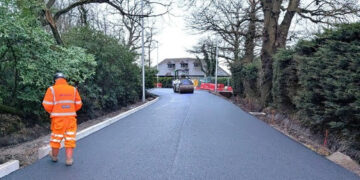TRAIN companies are warning that the extreme temperatures will cause disruption to services.
GWR, which runs services between Reading and Paddington, says journeys could take longer, with some cancelled. Those trains that are running are likely to be busier.
Passengers are asked to avoid making journeys if they can, but if they must travel to bring water, cover up and wear sun screen.
While air temperatures could hit 40ºC, track temperatures could exceed 50ºC, meaning speed restrictions will be necessary – they will be in place as needed over the weekend, and across Monday and Tuesday.
A revised timetable will be in operation, and passengers are asked to plan ahead.
SWR’s Customer Experience Director, Christian Neill, said: “These unprecedented temperatures will pose a significant challenge to the national railway infrastructure and we’re sorry for the impact they will have on our services on Monday and Tuesday.
“Network Rail is urging customers to only travel if absolutely necessary and anyone who has to travel should expect longer journey times, short-notice cancellations and disruption.
“We are working on a reduced timetable that provides certainty for our customers, but changes are likely to come at relatively short notice, so if you do choose to travel, please check your journey as close to your time of travel as possible.”
Its customers with tickets for Monday and Tuesday can use them on Wednesday and Thursday instead.
GWR Customer Service and Operations Director, Richard Rowland, said: “Passengers travelling over the next few days should take some sensible precautions, like bringing extra water, allow plenty of time for their journey and check their train is running before leaving home.”
Network Rail has been working all year round preparing the railway for extreme weather events such as this but given the expected temperatures we expect disruption.
Network Rail’s Infrastructure Maintenance Engineer, Dan Collins, said: “The safe and reliable running of the railway is our number-one priority, and we work very hard throughout the year to prepare the track in advance for extreme weather, particularly very hot temperatures which can cause the metal rails to expand.
“Our team of engineers has been busy identifying the parts of the railway most at risk and have completed a number of measures to mitigate the impact of the high temperatures including painting the metal rails white to reduce the temperature and tensioning the rails to prevent misalignment.”













































